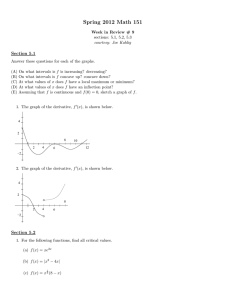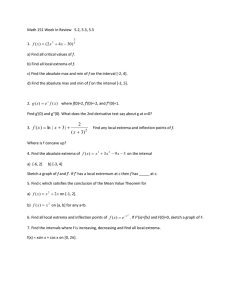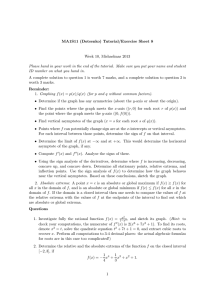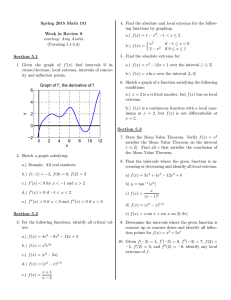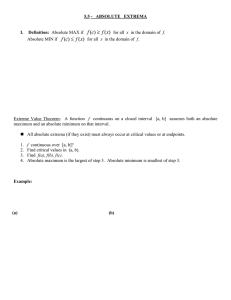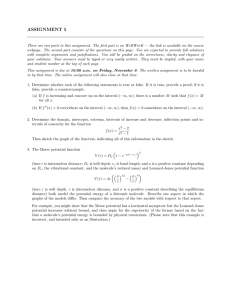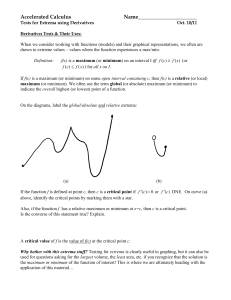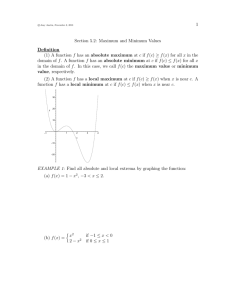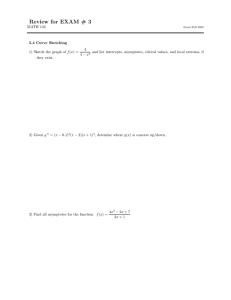2x Math 151 Week in Review 4. f (x) = − 4
advertisement
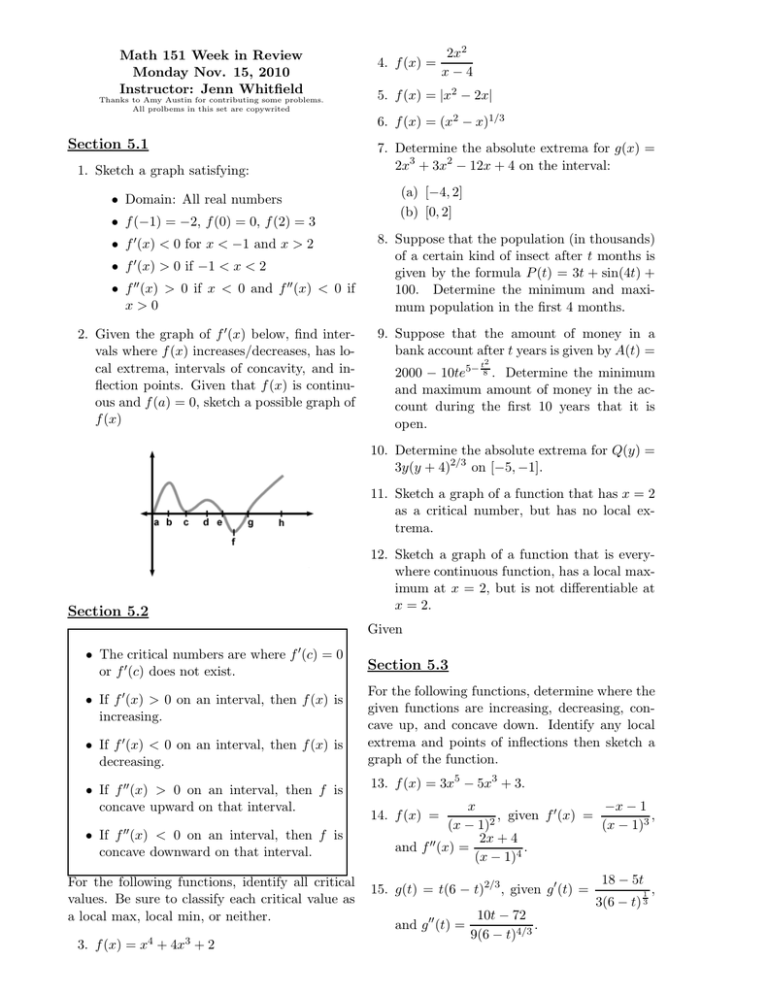
Math 151 Week in Review Monday Nov. 15, 2010 Instructor: Jenn Whitfield Thanks to Amy Austin for contributing some problems. All prolbems in this set are copywrited 4. f (x) = 2x2 x−4 5. f (x) = |x2 − 2x| 6. f (x) = (x2 − x)1/3 Section 5.1 1. Sketch a graph satisfying: • Domain: All real numbers • f (−1) = −2, f (0) = 0, f (2) = 3 • f ′ (x) < 0 for x < −1 and x > 2 • f ′ (x) > 0 if −1 < x < 2 • f ′′ (x) > 0 if x < 0 and f ′′ (x) < 0 if x>0 2. Given the graph of f ′ (x) below, find intervals where f (x) increases/decreases, has local extrema, intervals of concavity, and inflection points. Given that f (x) is continuous and f (a) = 0, sketch a possible graph of f (x) 7. Determine the absolute extrema for g(x) = 2x3 + 3x2 − 12x + 4 on the interval: (a) [−4, 2] (b) [0, 2] 8. Suppose that the population (in thousands) of a certain kind of insect after t months is given by the formula P (t) = 3t + sin(4t) + 100. Determine the minimum and maximum population in the first 4 months. 9. Suppose that the amount of money in a bank account after t years is given by A(t) = t2 2000 − 10te5− 8 . Determine the minimum and maximum amount of money in the account during the first 10 years that it is open. 10. Determine the absolute extrema for Q(y) = 3y(y + 4)2/3 on [−5, −1]. 11. Sketch a graph of a function that has x = 2 as a critical number, but has no local extrema. Section 5.2 12. Sketch a graph of a function that is everywhere continuous function, has a local maximum at x = 2, but is not differentiable at x = 2. Given • The critical numbers are where f ′ (c) = 0 or f ′ (c) does not exist. • If f ′ (x) > 0 on an interval, then f (x) is increasing. • If f ′ (x) < 0 on an interval, then f (x) is decreasing. • If f ′′ (x) > 0 on an interval, then f is concave upward on that interval. • If f ′′ (x) < 0 on an interval, then f is concave downward on that interval. For the following functions, identify all critical values. Be sure to classify each critical value as a local max, local min, or neither. 3. f (x) = x4 + 4x3 + 2 Section 5.3 For the following functions, determine where the given functions are increasing, decreasing, concave up, and concave down. Identify any local extrema and points of inflections then sketch a graph of the function. 13. f (x) = 3x5 − 5x3 + 3. −x − 1 x , given f ′ (x) = , 2 (x − 1) (x − 1)3 2x + 4 . and f ′′ (x) = (x − 1)4 14. f (x) = 15. g(t) = t(6 − t)2/3 , given g′ (t) = and g′′ (t) = 10t − 72 . 9(6 − t)4/3 18 − 5t 1 3(6 − t) 3 ,
